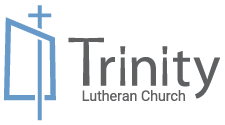Seventy-seven times you shall forgive . . .
Then Peter came and said to him, “Lord, if another member of the church sins against me, how often should I forgive? As many as seven times?” Jesus said to him, “Not seven times, but, I tell you, seventy-seven times.
Matthew 18:21-22
Beloved community,
Forgiveness is a fundamental calling in our faith tradition. We confess, however, that we’re not very good at it.
In this extraordinary time, as we continue to keep vigil and retreat in order to remain safe in the face of the COVID-19 pandemic, we find that patience begins to wane, frustrations simmer, the lack of freedom to live as we used to live adds stress, and tempers flare.
A Trinity member shared a local road rage story with me this past week in which he accidently cut off a driver in his blind spot and the driver began to shout with unbridled fury, unpleasantly augmented by obscene gestures. He pulled off the road into a parking lot to get away from his raging adversary and the enraged motorist pulled off with him. He was bracing for a terrible confrontation, but the formerly furious driver ended up apologizing for his fury. He confessed to being under a great deal of stress, citing the state of the world and his own personal state of mind. They parted in some form of ‘road peace’ after an explosive few minutes of road rage. Forgiveness was achieved.
In the overall scheme of things, the road rage moment pales next to the experience some carry through years of bearing deep grudges and withholding forgiveness. Some families remain broken through generations by the inability to extend forgiveness and forge a new beginning. Forgiving “seventy-seven times” is not our tendency in real-life relationships. The forgiveness commended by Jesus is meant to be offered without counting, without determining who wins. And such forgiveness is required of us, even if we are not very good at it.
In his wonderful little book Wishful Thinking; A Theological ABC,1 Frederick Buechner writes on forgiveness. I offer this excerpt from his writing as a quiet gift to you, my sisters and brothers, as our pandemic reality stretches into a fifth month and stress levels can lead us to brokenness with one another and injured relationships with those we love.
Buechner writes:
To forgive somebody is to say one way or another, “You have done something unspeakable, and by all rights I should call it quits between us. Both my pride and my principles demand no less. However, although I make no guarantees that I will be able to forget what you’ve done and though we may both carry the scars for life, I refuse to let it stand between us. I still want you for my friend.”
To accept forgiveness means to admit that you’ve done something unspeakable that needs to be forgiven, and thus both parties must swallow the same thing: their pride.
This seems to explain what Jesus means when he says to God, “Forgive us our trespasses as we forgive those who trespass against us.” Jesus is not saying that God’s forgiveness is conditional upon our forgiving others. In the first place, forgiveness that’s conditional isn’t really forgiveness at all, just Fair Warning, and in the second place our unforgivingness is among those things about us which we need to have God forgive us most. What Jesus apparently is saying is that the pride which keeps us from forgiving is the same pride which keeps us from accepting forgiveness, and will God please help us to something about it.
When somebody you’ve wronged forgives you, you’re spared the dull and self-diminishing throb of a guilty conscience.
When you forgive somebody who has wronged you, you’re spared the dismal corrosion of bitterness and wounded pride.
For both parties, forgiveness means the freedom again to be at peace inside their own skins and to be glad in each other’s presence.
We’re not very good at it. But forgiveness is a fundamental calling in our faith lives. For the sake of “being at peace in our own skins and glad in each other’s presence,” it’s worth practicing the art of forgiveness that is extended without determining who is ahead or who wins. Jesus said, “Not seven times, but, I tell you, seventy-seven times.” May you lose count in your forgivingness.
Blessings to you, O people of Trinity. May you be safe, may you be well, and may you be held in a forgiving love.
It remains a privilege to serve as one of your pastors.
Grace and peace,
Paster Bob Linstrom
1 Buechner, Frederick, Wishful Thinking; A Theological ABC (New York: Harper and Row, 1973), pages 28-29.


